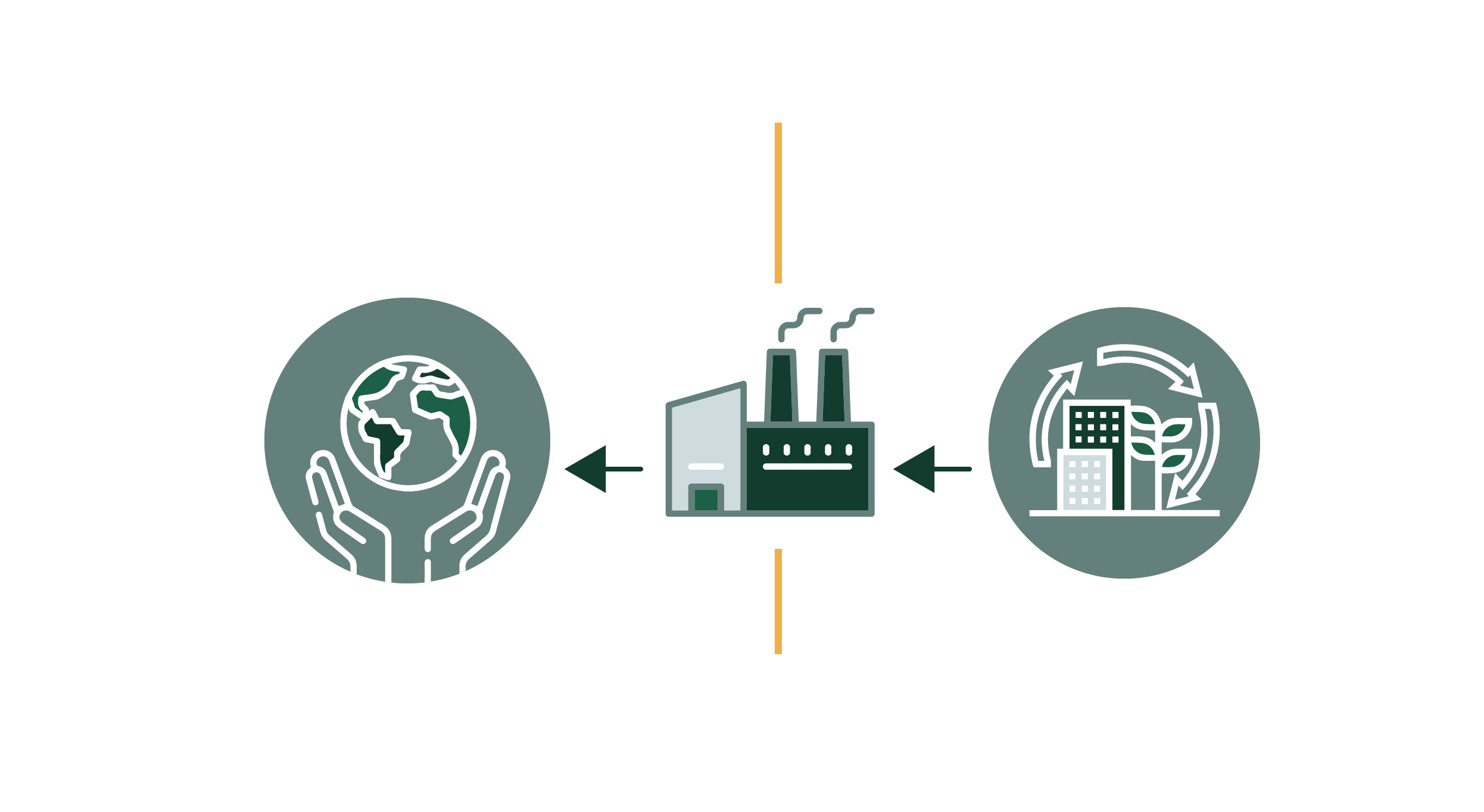BECOLD
A uniform approach for the cold chain industry.

Industry Level Sustainability
Sustainability is evolving from an option to a necessary shift across all industries, including in cold chains. As one of the crucial links in food and pharmaceutical value chains, these companies are faced with a dual challenge: the pressure of increased regulatory obligations, and pressure from customers and stakeholders. BECOLD and The Ecological Entrepreneur join forces to address this challenge by developing an industry level sustainability approach.
Through a sustainability analysis on industry-level, dozens of companies can now collaborate on various sustainability themes, based on an industry level reporting standard, resulting in:
- a comparative CO2 analysis with collective reduction and compensation projects.
- an industry standard for sustainability reporting with consistency, clarity, and equality.
EU regulations and cold chain response
The recent waves of legislation, stemming from the European Green Deal, including the Corporate Sustainability Reporting Directive (CSRD) and the European Sustainability Reporting Standards (ESRS), sets high standards for transparency and accountability regarding environmental impact. It forces the cold chain industry not only to react but to proactively act. A cold chain is a temperature-controlled supply chain comprising refrigerated production, storage and distribution facilities supported by equipment that can constantly maintain the required low-temperature range.
Industry alliance for sustainable development
Considering these challenges, BECOLD, the Belgian Coldchain Federation and The Ecological Entrepreneur have joined forces to develop an industry approach. The strength of this approach lies in its ability to accelerate the transition to sustainability by promoting collaboration, efficiency, and uniformity. Through standardised approaches to sustainability reporting, scientifically based strategies for CO2 reduction and compensation, and a focus on minimising reporting costs, the industry aims for tangible results on all ESG levels. Importantly, this industry approach is not only focused on compliance with legal obligations but also on creating a culture of sustainability and social responsibility across the entire value chain.
Industry-wide materiality assessment and carbon analysis
One of the core questions the industry is facing, is how to reduce and green its enormous energy consumption. Due to the growing global demand for cold/frozen products, it is necessary to find a responsible approach to meet this demand and contribute to the achievement of European climate goals.
By conducting a double materiality assessment on both company and industry levels, we made it possible to define material themes, reduce the cost for analysis and increase investment capacity for reduction measures. By analysing the CO2 emissions on Scope 1 and 2 emissions per company, a comparative study could be conducted on the carbon-intensity per company (CO2 compared to turnover, profit, number of pallets, etc.). The strength of this approach lies in comparing company performance with industry data, stimulating industry-wide discussions, and developing effective CO2 reduction and compensation strategies. By focusing on key sustainability issues, our industry approach aims for targeted action and setting a standard for sustainability reporting, providing consistency and uniformity to all stakeholders.
The opportunity with CSRD
The CSRD provides industry federations with an opportunity to work together on sustainability by creating a uniform approach and providing a coordinated response to members and stakeholders. As industry federations, let’s seize the chance offered by the CSRD to unite and champion sustainability initiatives. By forging a collective path towards environmental responsibility, we can lead our sectors towards a more sustainable and resilient future. Join us in taking meaningful action and making a positive impact on both our planet and economy.
About BECOLD
BECOLD is the Belgian Coldchain Federation, representing companies active in the refrigeration and frozen sector, including logistics, and promotes sustainability through less food waste, energy-efficient production, and environmentally friendly packaging. With 25 members and more than 4.32 million m³ of storage space, the sector contributes to the direct employment of at least 17,000 workers, thanks to the growing demand for frozen products.

We bring ecology and economy together for your organisation! Choose your sustainable future




